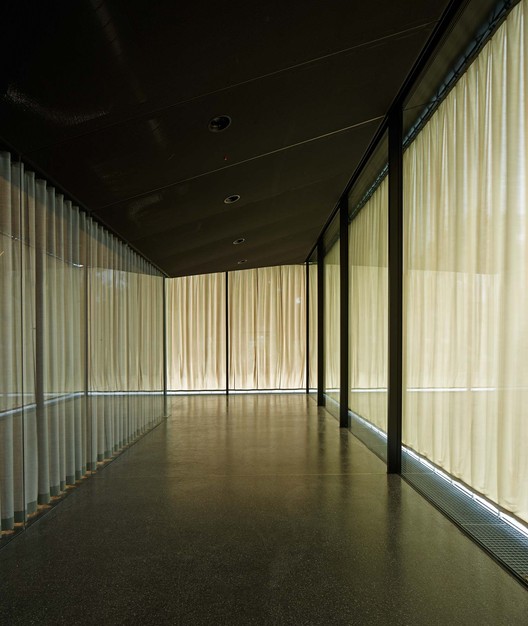
-
Architects: :mlzd
- Area: 760 m²
- Year: 2014
-
Photographs:Alexander Jaquemet

Text description provided by the architects. The Gurten Pavilion is a festive and functional venue available throughout the year for large public events. The pavilion is located on the site of the old Belvedere, offering the most exquisite view of Bern and The Alps since the construction of the first Gurten restaurant in the mid 19th century. The building , the winning entry of a design competition, captures this motif with its exceptional transparency and its unique, uninterrupted magnificent view.


































